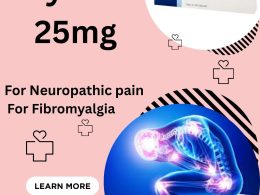As a journalist, I am always on the lookout for groundbreaking developments in medical research that have the potential to revolutionize our understanding and management of diseases. In recent breaking news, eyes are being investigated as a potential diagnostic tool for Alzheimer’s disease, a progressive brain disorder that affects memory, thinking, and behavior.
-
Breaking News: Eyes as a Window to the Brain in Alzheimer’s Disease
Alzheimer’s disease, a neurodegenerative condition that currently has no cure, poses significant challenges in early diagnosis and treatment. However, recent studies have shed light on the potential of using the eyes as a window to the brain, providing valuable insights into Alzheimer’s pathology.
Research has shown that the eyes, specifically the retina and the optic nerve, are closely connected to the brain and share similar pathological changes with Alzheimer’s disease. Abnormal protein deposits, such as beta-amyloid plaques and tau tangles, which are hallmarks of Alzheimer’s, have been found in the retina of individuals with Alzheimer’s disease.
These findings have led researchers to explore the possibility of using eye examinations as a non-invasive and cost-effective method for detecting Alzheimer’s disease in its early stages, potentially allowing for earlier interventions and improved patient outcomes.
-
Research Techniques: Exploring the Relationship Between Eyes and Alzheimer’s
Scientists have utilized various research techniques to explore the relationship between the eyes and Alzheimer’s disease. Studies have employed methods such as retinal imaging, optical coherence tomography (OCT), and other advanced imaging techniques to investigate changes in the retina and optic nerve in Alzheimer’s patients.
For instance, retinal imaging studies have demonstrated the presence of beta-amyloid plaques in the retina of individuals with Alzheimer’s disease, as well as changes in retinal thickness and blood vessel density. OCT, a non-invasive imaging technique that allows for high-resolution cross-sectional imaging of the retina, has also shown promise in detecting retinal changes in Alzheimer’s patients.
Furthermore, other studies have explored the use of eye-tracking technology and pupillometry to assess cognitive function and detect early signs of Alzheimer’s disease. These research techniques are paving the way for further investigation into the potential use of eyes as a diagnostic tool for Alzheimer’s.
-
Implications for Diagnosis and Treatment: Expert Opinions
The findings regarding the potential use of eyes as a diagnostic tool for Alzheimer’s disease have significant implications for early diagnosis and treatment. Experts in the field have weighed in on the potential benefits and challenges of this approach.
Dr. Sarah Liu, a neurologist specializing in Alzheimer’s disease, stated, “The research into the eyes as a diagnostic tool for Alzheimer’s is promising. If we can reliably detect changes in the retina and optic nerve using non-invasive eye examinations, it could provide us with a valuable tool for early diagnosis and intervention, which is crucial for improving outcomes in Alzheimer’s patients.”
However, it’s important to note that more research is needed to validate the use of eyes as a diagnostic tool for Alzheimer’s disease, and there are challenges to overcome, such as standardization of protocols and addressing potential confounding factors.
In conclusion, the use of eyes as a potential diagnostic tool for Alzheimer’s disease is an exciting and rapidly evolving field of research. Through advanced research techniques, scientists are uncovering the relationship between the eyes and Alzheimer’s, providing valuable insights into the disease’s pathology.












